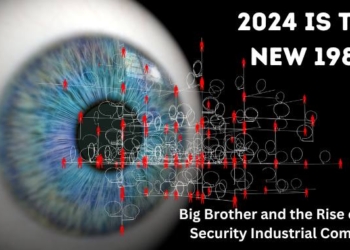
The technique of surveillance is a frequent matter of discussion nowadays. People often argue about their effectiveness and usefulness. Some people believe that using surveillance as a method of gaining information is something unethical and shouldn’t be allowed but others believe that it’s an important tool for detecting or preventing crimes or investigating the ones that have already taken place.
Surveillance is defined as conducting close observations on an individual or a group and it has a long history. Although now it’s widely considered that surveillance is a product of the 21st century there are lots of examples of surveillance activities throughout history. We can even see its traces in the Bible, in ancient Egypt, or the totalitarian systems of the previous century. Today the strategies of using this technique have changed but it has always meant gathering information and supervising the actions of other people and using this collected information to increase understanding of their actions.
As technologies develop, now there are a lot more delicate strategies to monitor people including cameras and facial recognition that are used to monitor public and private spaces and identify people. The effectiveness of this technology is still a matter of debate, but it’s becoming more and more widely used. As a result, scientists try to gain more insights into how it works and how it affects people’s behavior.
The psychological side of surveillance
Research suggests that surveillance affects the way people behave. The behavioral patterns of humans change when they know that they’re being watched. The reason for this is that when we’re aware that somebody’s watching us out inhibitory control ability changes within an emotional context. This is called the “audience effect”. Usually, changing gaze patterns may be used as warning signals and when we are aware that somebody checks our actions, we behave more prosocially. The reason for increased prosocial behavior is that surveillance makes the pressure to act according to social norms. And social norms suggest conducting prosocial behavior. In fact, according to the above-mentioned study, the increase in prosocial behavior correlates with higher social anxiety traits, because that kind of tension provokes social anxiety.
Psychologists have conducted several experiments to prove this hypothesis. For example, there was a small test conducted by a specific casino when talks were going on about implementing facial recognition on casino platforms to identify people below the legal gambling age. What they did was they gave people a large choice of RTG casino bonus codes due to how recognizable the brand was. The research participants were divided into two groups. They left the first group alone and let them choose without interference. But with the other group, representatives of the research team remained in the room and watched these people very carefully. As a result, researchers noted that the first group was a lot slower in choosing the bonus as they wanted to choose the best one. However, the second group took much less time. After the experiment, the researchers asked the participants to explain the reasons for their behavior. People in the second group said that they thought there was a deadline or some sort of pressure from people standing there waiting for them to make a choice.
The results indicate that being watched changes the way people act. The main reason for this is the pressure to perform better, to appear more socially desirable people who can achieve their goals. This pressure sometimes even makes people behave irrationally. What we mean is there is that they try to compete with other people around them and appear as the most effective worker, the smartest research participant, or just a person who is the most proficient in his or her work.
The Hawthorne effect
What is the psychology behind being watched? The well-known term in work and organizational psychology describing the tendency to work harder and perform better when they are research participants is called the Hawthorne effect. However, this term suggests that people can change their behavior, not because of any experiment manipulations, but because they are receiving great attention from researchers. This means that surveillance doesn’t only change our behavior but also, it affects our mental state as well.
The phenomenon was first described in the 195os by researcher Henry Landsberger and it’s named after the location where experiments took place. The purpose of this study was to determine how different aspects of the work environment influenced the productivity of workers. They concluded that workers were responding to the attention of supervisors and their productivity increased because of this attention and not because of changes in the work environment.
Effects of surveillance
Nowadays this topic is more relevant than ever because, with the popularity of social media and online gaming, our behavior should be at the forefront of our mind. Today some people even choose to be watched as long as they feel protected but in general, surveillance doesn’t have good effects on society. First of all, it can cause decreased trust in the government. When people think that they are being watched, they feel more afraid and despite the fact, they have something to worry about or not.
Also, they feel increased stress, because privacy is essential for everybody. It plays an important role in the way people manage their lives. When somebody watches them they feel that they can’t fully control their lives which causes stress. But stress is not the only mental health effect of mass surveillance and also, it raises anxiety which can lead to physiological health conditions like high blood pressure, obesity, and even cancer. Besides, mass surveillance has an important effect on our social relationships and when people know that they are being observed while they communicate with others online or offline, they feel more circumspect, which suppresses intimacy.
Finally, what we can say is that although sometimes surveillance is necessary to protect the safety of people, in general, it doesn’t have good effects on our psychological well-being and causes lots of problems regarding our mental state. So, it’s important to use this technique carefully and selectively, only whenever it’s necessary.













